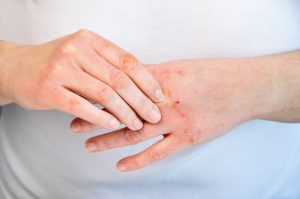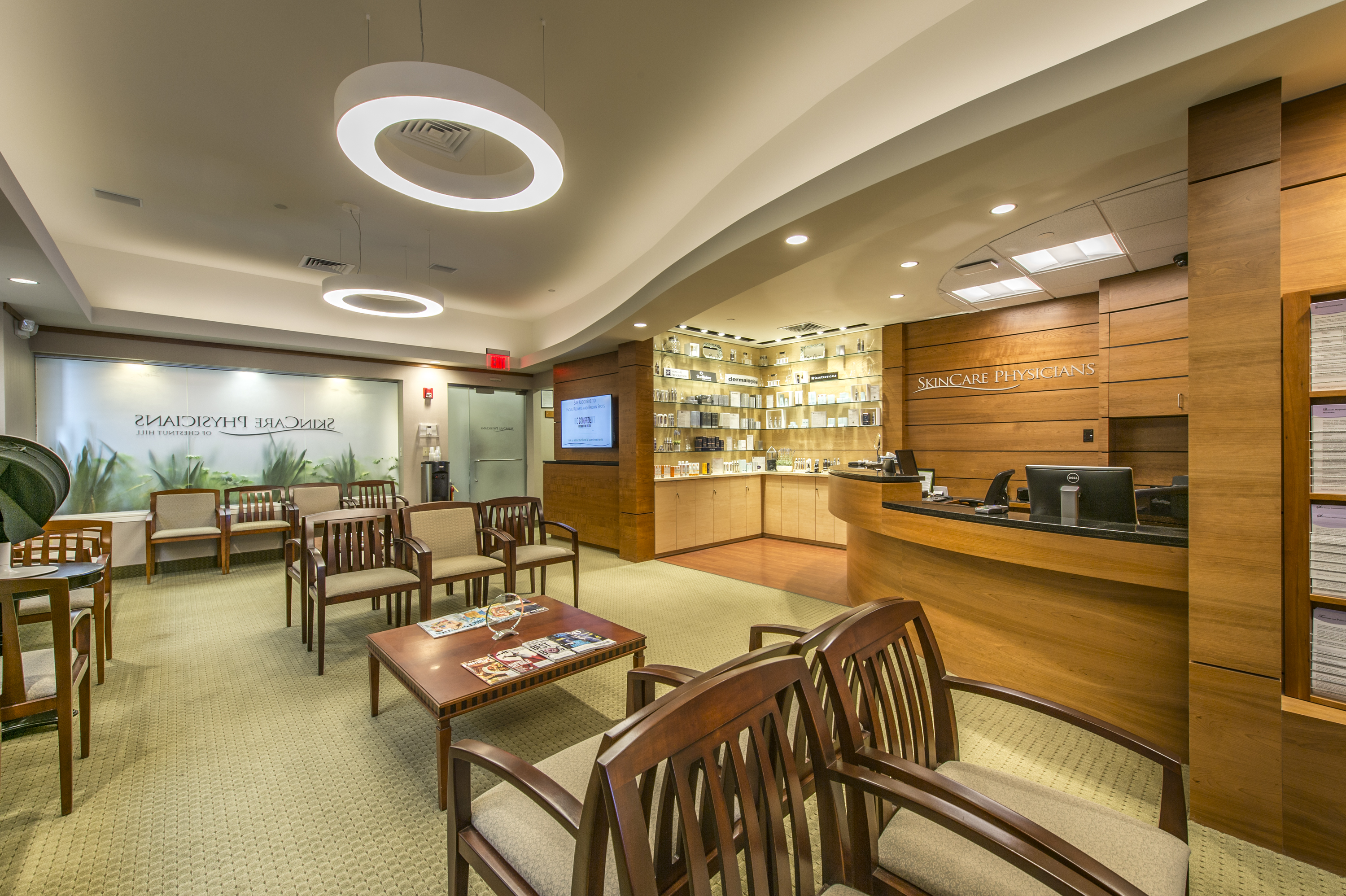- Home
- Blog
- Medical Dermatology
- How to beat hand dermatitis in times of frequent handwashing
How to beat hand dermatitis in times of frequent handwashing
 Several weeks ago, SkinCare Physicians published a blog that focused on the role of proper handwashing technique in slowing the coronavirus pandemic. Today, our dermatologists will deal with the follow-up problem that should not be left untreated: hand dermatitis. This is the dry, cracked, irritated and inflamed skin condition on the hands and wrists which many of our patients are experiencing with all of the increased handwashing and hand sanitizing. In fact, one of the indicators that you’ve been following the handwashing recommendations well is if you are now struggling with hand dermatitis!
Several weeks ago, SkinCare Physicians published a blog that focused on the role of proper handwashing technique in slowing the coronavirus pandemic. Today, our dermatologists will deal with the follow-up problem that should not be left untreated: hand dermatitis. This is the dry, cracked, irritated and inflamed skin condition on the hands and wrists which many of our patients are experiencing with all of the increased handwashing and hand sanitizing. In fact, one of the indicators that you’ve been following the handwashing recommendations well is if you are now struggling with hand dermatitis!
Even in normal years, the dermatologists at SkinCare Physicians often see hand dermatitis flaring in the cold, dry weather of the winter months. This year, the issue is exacerbated by the vastly increased frequency of handwashing. When treating hand dermatitis, the first step that dermatologists recommend is to avoid exposure to irritants. Some of the most important skin irritants everyone is facing right now are hand soap and sanitizers, and we simply cannot avoid that. What to do? There are 4 main steps to follow.
STEP 1: Avoid irritants
There are no truly “dermatitis-friendly” hand sanitizers or soaps. There are some soaps that are less irritating than others, but the very function of soap in disrupting viral particles is exactly what predisposes to hand dermatitis. The role of soaps in preventing coronavirus infection is that they disrupt lipids (oils) on a molecular level. So soaps can destroy the lipids on the viral particle surface, but at the same time, the soap is disrupting the normal lipids that form a protective barrier on your skin’s surface! That’s what then leads to dermatitis. Similarly, hand sanitizers by their very nature are irritating. Hand sanitizers are only effective against the novel coronavirus if they are >60% alcohol, but anything with that high a concentration of alcohol is going to trigger irritancy if it is applied to the skin often.
So, we are in a situation where we cannot avoid the irritants our poor hands are being exposed to, but there are still some ways of diminishing exposure to irritants. For example, if there are other sources of irritancy in your environment, try to minimize them. For example, wear rubber gloves for household chores that expose you to harsh cleansers or solvents. If you are exposed to raw, cold weather, be sure to wear gloves or mittens.
STEP 2: Restore your skin lipid barrier
The second step for treating hand dermatitis is to restore the skin’s barrier function. Hand soaps and sanitizers disrupt the skin’s lipid barrier, and we want to find ways to replenish it. The simple act of applying a hand cream is the way to go here. There really isn’t a right or wrong hand cream: find one you like the feel of and the container, and then make it accessible. That’s the key part: accessibility. We are all washing and sanitizing so much, if the hand cream is not right at your sink, you aren’t going to use it. So, make your hand cream of choice available by purchasing multiple tubes, or by getting some small travel containers and divvying the hand cream among them. Keep a container at the bathroom sink, the kitchen sink, your desk, your pocketbook, and your car. Even if you KNOW that you will be washing your hands 5 minutes later (and you will!), put the hand cream on to mitigate the damage to your skin’s lipid barrier.
Some good hand creams to try are:
– Neutrogena Hand Cream (Norwegian Formula)
– Aveeno Eczema Therapy Balm: it comes in a big tub, think about splitting it among smaller containers.
– Eucerin Advanced Repair Hand Cream
– L’Occitane Hand Creams: these come in some delightful scents that make you WANT to put it one. Obviously, these are useful only if you tolerate fragrances.
– EltaMD So Silky Hand Crème
STEP 3: Treat the skin inflammation
The third step is to actually treat the dermatitis that has arisen. Dermatitis is not simply dry skin, it means that the skin has actually become inflamed. All the moisturizer in the world will not effectively diminish actual dermatitis in the face of ongoing exposure to irritants. You need a steroid, or other anti-inflammatory medication, to do this. The best over the counter option is to use hydrocortisone 1% ointment twice daily. Your doctor can prescribe a stronger steroid if the low-potency hydrocortisone is not doing the job. Dermatologists can safely use stronger steroids on the hands than we might consider elsewhere, because the skin on the hands is so thick. We have fewer concerns about thinning of the skin, or atrophy. Dermatologists also have some non-steroid options available to treat the inflammation of hand dermatitis.
STEP 4: Treat fissures in the skin
Some people develop deep, painful cracks in the skin, called fissures. If you develop painful fissures as a part of your hand dermatitis, sealants such as New-Skin can be very helpful in diminishing the discomfort and promoting healing. Believe it or not, some also recommend the use of Krazy Glue! Krazy Glue is a cyanoacrylate glue, which has been used medically as a surgical glue. A small amount of this glue on a toothpick can be laid into the base of the fissure as a sealant.
Treating hand dermatitis is essential, because if the skin is raw and chapped, then soaps and hand sanitizers actually do not work as well. In addition, if the skin is cracked or bleeding, bacteria and viruses are more likely to infect these areas because of the loss of the normal skin barrier function. If the steps outlined above fail to treat your hand dermatitis, the dermatologists at SkinCare Physicians can see you “virtually” through our new telemedicine platform. Through a mobile phone or laptop computer you can see your dermatologist from the comfort and safety of your own home. Check out how to set up a telemedicine visit.
You may also like:
How to care for your hands during the coronavirus crisis



Leave a Reply